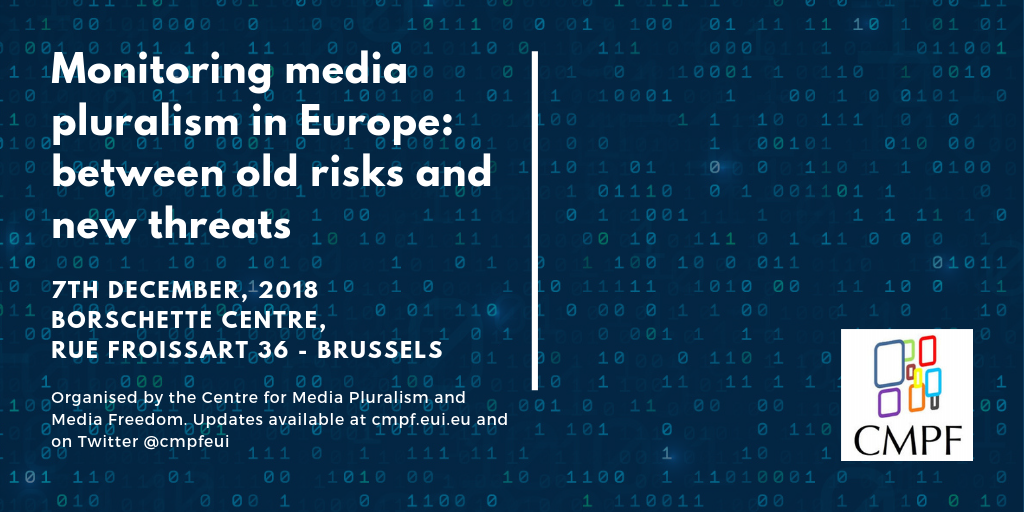Rue Froissart 36
1040 Etterbeek
Belgium
Monitoring media pluralism in Europe: between old risks and new threats
The Media Pluralism Monitor (MPM) is a holistic tool to assess the risks to media pluralism in a given country. It is based on a set of twenty indicators covering a broad notion of media pluralism that encompasses political, cultural, geographical, structural and content-related dimensions. The risks for media pluralism are measured in four different areas: Basic Protection, Market Plurality, Political Independence and Social Inclusiveness. The indicators cover legal, economic and socio-political questions.
In 2017, the Centre for Media Pluralism and Media Freedom carried out the EU-wide implementation of the Media Pluralism Monitor (MPM2017). The MPM2017 also covers three candidate countries (the Former Yugoslav Republic of Macedonia (FYRoM), Serbia and Turkey).
The results of the MPM2017 monitoring exercise generally confirm the highlights of the previous rounds of the MPM’s implementation (see https://cmpf.eui.eu/media-pluralism-monitor/): none of the analysed countries is free from risks to media pluralism. The latest findings show either a stagnation or a deterioration in all of the four major areas covered by the MPM, and an increase in risk for the area of Basic protection is a particular source of concern.
In addition to the “traditional” sources of risks to media pluralism, the contemporary digital environment brings challenges. The growing dominance of a few digital intermediaries and social platforms strongly affects the news business, news distribution and audience habits. Algorithms, artificial intelligence and automation are already applied in many aspects of information production and distribution. It has opened a Pandora’s Box of opportunities, but also threats such as spread of online disinformation and hate speech, (mis-)use of personal data for targeted information, political advertising, non-transparent content moderation, net neutrality violations, to name a few.
In keeping with the event’s name “between old risks and new threats”, we will first present and discuss the latest findings of the Media Pluralism Monitor (MPM2017). Second, an afternoon roundtable discussion featuring scholars, experts, stakeholders and policy-makers from around Europe, will draw our attention to more recent digital-related challenges in an effort to define potential indicators to be measured, using the risk-based logic of the Media Pluralism Monitor.
CMPF staff, including director Pier Luigi Parcu, scientific coordinator Elda Brogi and researchers Iva Nenadic and Mario Viola de Azevedo Cunha will present the results of the 2017 Media Pluralism Monitor.
The MPM project is co-funded by the European Union.
List of Guest Speakers
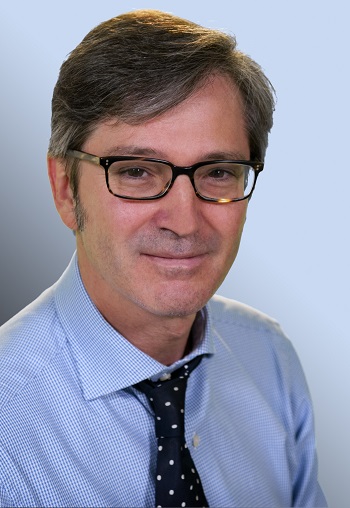
Giuseppe Abbamonte was appointed Director of the Media and Data Directorate in January 2014. The Directorate is, amongst many other things, responsible for the development and follow-up of the European regulatory framework on audiovisual media and the European Big Data Strategy.
Shortly after his appointment as Director, Giuseppe delivered a major Communication setting out the Commission’s strategy on Data called “Towards a thriving data-driven economy” and set up the European Public Private Partnership on Big Data Value.
Recently he delivered the new legislative proposal amending the Audiovisual Media Services Directive, adopted by the European Commission on 25 May 2016.
On 1st July 2016 he took over the new Media Policy Directorate in charge of, amongst other policies, copyright reform, AVMSD and support to the media industry.
In his former positions, he was the head of the electronic communications policy unit and then of the cybersecurity and on-line privacy unit. As part of the latter job, he supervised and directed the elaboration of the European Cybersecurity Strategy and of a proposal for a European law on network and information security. He also has an extensive experience in complex merger cases and in consumer law.
Before joining the Commission he was an associate in an international law firm in Milan for four years (1989/1992), where he dealt mainly with commercial law and competition law.
He is the author of several publications mainly in English law magazines.
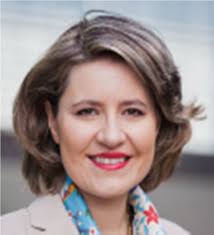 European Commission, DG Communications Networks, Content and Technology.
European Commission, DG Communications Networks, Content and Technology.Head of Audiovisual and Media Policy Services Unit.
Anna Herold is currently Head of the Audiovisual and Media Policy Unit at the European Commission. She was previously Member of Cabinet of Günther H. Oettinger, European Commissioner responsible for Digital Economy and Society. Prior to that, she was Assistant to Deputy Director-General of DG Communications Networks, Content and Technology of the European Commission, Roberto Viola. She has worked for the European Commission since 2003, dealing with media, audiovisual and telecoms policy as well as competition law. Anna holds a PhD in Law from the European University Institute in Florence and has written on media law and policy, international trade and competition law.
 Ľuboš Kukliš is Executive Director of the Council for Broadcasting and Retransmission of Slovakia. He serves as Chair of the European Regulators Group for Audiovisual Media Services (ERGA). In the field of media and administrative law he is also active in lecturing and writing – most recently Electronic Media Regulation (Wolters Kluwer, 2015), Slovak Broadcasting Act – A Commentary (Wolters Kluwer, 2016).
Ľuboš Kukliš is Executive Director of the Council for Broadcasting and Retransmission of Slovakia. He serves as Chair of the European Regulators Group for Audiovisual Media Services (ERGA). In the field of media and administrative law he is also active in lecturing and writing – most recently Electronic Media Regulation (Wolters Kluwer, 2015), Slovak Broadcasting Act – A Commentary (Wolters Kluwer, 2016).
 Renate Schroeder is the Director of the European Federation of Journalists, the largest organisation of journalists in Europe, representing over 320,000 journalists in 72 journalists’ organisations across 44 countries. In 1993 she started working for the International Federation of Journalists (IFJ) and since 2003 she works for the EFJ. Advocacy at EU and Council of Europe level; presentation of EFJ at international meetings and fact-finding media freedom missions; project work, communication and assistance in several EFJ expert groups including on freelances, broadcasting media literacy and digital journalism, are part of her work-load in the small dynamic Brussels office.
Renate Schroeder is the Director of the European Federation of Journalists, the largest organisation of journalists in Europe, representing over 320,000 journalists in 72 journalists’ organisations across 44 countries. In 1993 she started working for the International Federation of Journalists (IFJ) and since 2003 she works for the EFJ. Advocacy at EU and Council of Europe level; presentation of EFJ at international meetings and fact-finding media freedom missions; project work, communication and assistance in several EFJ expert groups including on freelances, broadcasting media literacy and digital journalism, are part of her work-load in the small dynamic Brussels office.
Renate Schroeder studied International Relations and Political Science at Boston University (Bachelor’s Degree in 1988, Magna Cum Laude) and in Berlin at the Free University (Masters in 1992). Major themes during her Masters program were nationalism, integration and refugee policy.
Renate worked among other at the United Nations, New York, the research institute FAST in Berlin and the Friedrich-Ebert Foundation in Brussels before she joined the IFJ/EFJ team. She is of German nationality and speaks English, French, Italian, German and Spanish (passive).
 Assoc. Prof. Ceren Sözeri is a faculty member at the Communication Department of Galatasaray University. She earned both her bachelor’s and master’s degree from Galatasaray University. She received her Ph.D. from Marmara University. She has published on political economy of the media, media policies, freedom of the press, ethical issues, besides, discrimination and hate speech in traditional and online media in Turkey. She has been the Ethical Journalism Network’s (EJN) representative in Turkey since 2015 and a columnist for Evrensel daily.
Assoc. Prof. Ceren Sözeri is a faculty member at the Communication Department of Galatasaray University. She earned both her bachelor’s and master’s degree from Galatasaray University. She received her Ph.D. from Marmara University. She has published on political economy of the media, media policies, freedom of the press, ethical issues, besides, discrimination and hate speech in traditional and online media in Turkey. She has been the Ethical Journalism Network’s (EJN) representative in Turkey since 2015 and a columnist for Evrensel daily.
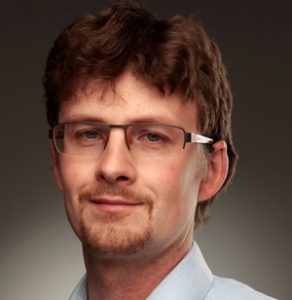 Vaclav Stetka is since 2016 Lecturer at the Department of Social Sciences, Loughborough University. Between 2009 and 2013 he worked as Senior Research Fellow at the University of Oxford, then he was appointed Head of the Political Communication Research Group (PolCoRe) at Charles University in Prague. He is currently participating on several international research projects, including the COST IS1308 Action on Populist Political Communication (2014-2018), Reuters Institute’s Digital News Project (since 2015) and Media Pluralism Monitor, EUI (since 2015). Since 2016 he serves as Vice-Chair of the Political Communication Section (ECREA). His research interests involve social media, political communication, media ownership and the relationship between media and democracy.
Vaclav Stetka is since 2016 Lecturer at the Department of Social Sciences, Loughborough University. Between 2009 and 2013 he worked as Senior Research Fellow at the University of Oxford, then he was appointed Head of the Political Communication Research Group (PolCoRe) at Charles University in Prague. He is currently participating on several international research projects, including the COST IS1308 Action on Populist Political Communication (2014-2018), Reuters Institute’s Digital News Project (since 2015) and Media Pluralism Monitor, EUI (since 2015). Since 2016 he serves as Vice-Chair of the Political Communication Section (ECREA). His research interests involve social media, political communication, media ownership and the relationship between media and democracy.
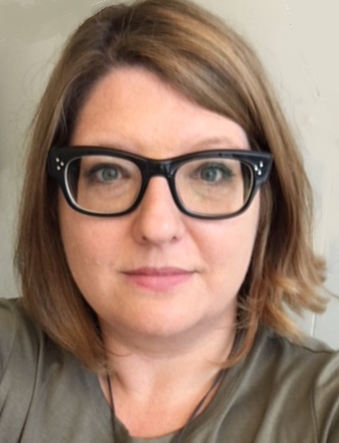 Urška Umek is Head of Media Unit at the Council of Europe’s Information Society Department, responsible for developing standards in the area of media freedom. She previously worked as a lawyer at the Registry of the European Court of Human Rights (2012 – 2016) and as a lawyer-linguist at the Court of Justice of the European Union (2008), after starting her career as a legal adviser at the Constitutional Court of the Republic of Slovenia, where she also headed the Research and International Cooperation Department from 2009 until 2012. She contributed to the 2011 “Commentary to the Constitution of the Republic of Slovenia” and to the book “The Constitutional Reforms of the Constitutional Justice”.
Urška Umek is Head of Media Unit at the Council of Europe’s Information Society Department, responsible for developing standards in the area of media freedom. She previously worked as a lawyer at the Registry of the European Court of Human Rights (2012 – 2016) and as a lawyer-linguist at the Court of Justice of the European Union (2008), after starting her career as a legal adviser at the Constitutional Court of the Republic of Slovenia, where she also headed the Research and International Cooperation Department from 2009 until 2012. She contributed to the 2011 “Commentary to the Constitution of the Republic of Slovenia” and to the book “The Constitutional Reforms of the Constitutional Justice”.
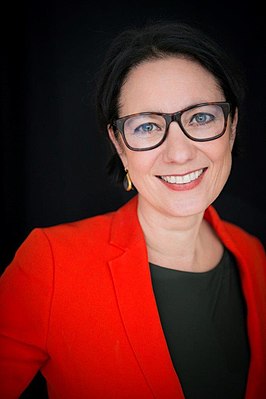
Prof. Madeleine de Cock Buning is part-time Professor at the School of Transnational Governance, European University Institute. In her role at the European University Institute, Professor de Cock Buning will lead work on Digital Politics, Economy and Societies at the School of Transnational Governance.
Professor de Cock Buning was Chair of the European Commission’s High-Level Expert Group (HLEG) on fake news and disinformation, assigned to provide the commission with options on how to react to the dissemination of fake news both online and offline. Dr. Prof. de Cock Buning is appointed professor at the Faculty of Law, Economy and Governance (UU) with a chair in Copyright Law and Media and Communication Law.
Presentations
PIER LUIGI PARCU
ELDA BROGI
IVA NENADIC
MARIO VIOLA DE AZEVEDO CUNHA
URSKA UMEK
LUBOS KUKLIS
ADELINE HULIN
VACLAV STETKA

